Local Government and Communities Committee
Local Government and Communities Committee Session 5 Legacy Report
Previous Members of the Committee During Session 6
Convener
Bob Doris (SNP) (15 June 2016 – 6 September 2018)
Deputy Convener
Monica Lennon (Lab) (10 January 2018 – 14 November 2018)
Alex Rowley (Lab) (21 November 2018 – 4 September 2019)
Elaine Smith (Lab) (15 June 2016 – 9 January 2018)
Members
Jeremy Balfour (Con) (25 February 2020 – 20 August 2020)
Mairi Evans (SNP) (8 June 2016 – 6 September 2016)
Annabelle Ewing (SNP) (6 September 2018 – 31 August 2020)
Kenneth Gibson (SNP) (8 June 2016 – 1 September 2020)
Jenny Gilruth (SNP) (30 March 2017 – 6 September 2018)
Ruth Maguire (SNP) (6 September 2016 – 30 March 2017)
Gail Ross (SNP) (1 September 2020 – 3 December 2020)
Graham Simpson (Con) (8 June 2016 – 20 August 2020)
Introduction
This legacy report is addressed to the Local Government and Communities Committee‘s successor committee(s) in the hope that it may prove useful as part of the consideration of forward work programmes for Session 6 and the conduct of committee business.
The paper records the main pieces of work which the Committee undertook during session 5. It also identifies some work which may be required to be carried out in session 6, as well as some outstanding or ongoing work which the Committee believes its successor committee(s) might wish to consider undertaking.
We have grouped areas of work by theme/policy area where possible.
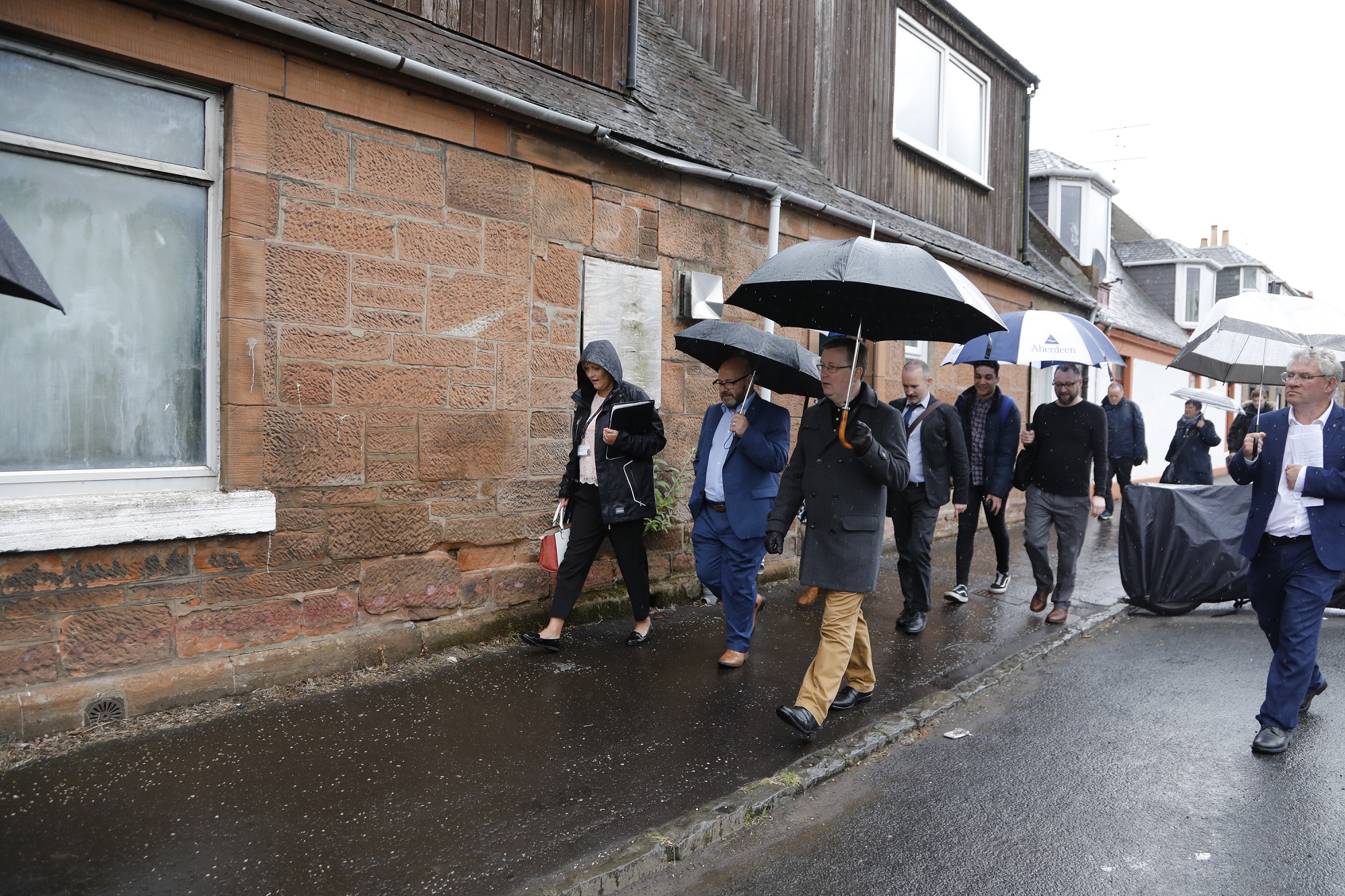
Summary of key issues for Session 6
Local Government
We heard from local authorities that more clarity on the impact of policies on existing services and how these relate to the National Performance Framework would be useful. It would also be helpful if the Scottish Government could explicitly set out the funding for core services which is not ring fenced for specific services. Our successor Committee may wish to pursue this further as part of its own budget scrutiny.
Our successor may wish to press the Scottish Government on whether a review of the funding formula for local government will be taken forward and whether discussion on the funding formula will be a feature of the local governance review.
Our successor Committee may wish to pursue some of these issues further (paragraph 37) as part of its own budget scrutiny, and how well-equipped local authorities will be able to cope with long-term financial pressures as we emerge from the pandemic.
Our successor Committee may wish to do its own similar work on improving voter turnout in local elections, including hearing from the Electoral Commission at an early stage on any lessons learned from running the Scottish Parliament elections in 2021 during the pandemic.
Housing
The Committee with responsibility for housing in Session 6 will be required to look at any revised proposals relating to the regulation of short term lets. It may wish to undertake its own detailed scrutiny of short-term letting prior to the laying of any revised proposals.
The Session 6 Committee might wish to make the issue of affordable housing supply and its wider impacts a key priority for scrutiny. It should continue to hold the Scottish Government to account on its progress towards increasing housing supply and the provision of affordable housing where it is needed, measures to tackle rising rents and the reliance on the private rented sector for some of the more vulnerable members of society and the issue of empty homes.
We strongly urge the successor committee to monitor the Scottish Government’s commitments to implement a new system for tracking private rents and ensure that the data from this system is effectively used in the development and monitoring of future policy.
The successor Committee may wish to take evidence from the Scottish Government and the Nationwide Foundation on their work examining the impact of the Private Housing (Tenancies) Scotland Act 2016.
The successor committee may wish to revisit the issue of access to justice for tenants and landlords to the First-tier Tribunal (Housing and Property) Chamber. It could consider whether there is scope for improving the accessibility and operation of the Tribunal process. This could link in with any further work the successor Committee chooses to do on implementation of the Private Housing (Tenancies)(Scotland) Act 2016 or work on enforcement of private rented regulation more generally.
The Committee's successor should continue scrutiny of the Scottish Government’s plans to end homelessness. It could take evidence from councils, other relevant bodies and homeless/previously homeless people around progress with implementing the Ending Homelessness Together Action plan and implementation of rapid rehousing plans.
Once the new Fuel Poverty Strategy has been produced, our successor Committee might wish to hear from Ministers, campaign groups, house owners, tenants and other stakeholders about what needs to be done to ensure all Scottish households live in affordable warmth by the target date.
The successor Committee might wish to take note of this correspondence (paragraph 85) in relation to any scrutiny it undertakes pertaining to the review of the Property Factors Code of Conduct. Clerks will ensure that all correspondence associated with the above is shared with the successor Committee in the next parliamentary session to inform any scrutiny.
Building Regulations and fire safety
The Session 6 Committee might wish to consider taking forward some of the following issues in any scrutiny it undertakes in relation to building regulations and fire safety:
New Housing Ombudsman: Building on the work the current Committee has done on building standards and the verification process, the UK Government intends to introduce a nationwide New Homes Ombudsman. There will likely be a Legislative Consent Memorandum on this at some point.
Zero valued homes: The issue of cladding systems, mortgage valuations, EWS1 forms and grants to support cladding removal and replacement may remain an issue for the foreseeable future.
Building standards verification: Much of the Committee’s building standards work over the session has focused on the issue that what gets built quite often does not match the plans that have been approved by building standards verifiers. This can result in poor quality homes, issues with PFI/PPP schools and several new hospital buildings. Until the verification system is improved and incentives for developers to build to the plans increased, these are likely to remain issues of concern.
The role of the private sector in building standards verification.
Planning
The Session 6 Committee is likely to have a scrutiny role in relation to some of the following matters relating to planning:
National Planning Framework 4 (NPF4): The scope of the NPF was enhanced by the Planning (Scotland) Act 2019. It will now form part of every development plan and incorporate the policy elements previously included in the Scottish Planning Policy. The Scottish Government published a position statement on NPF4 in November 2020. The successor to the Local Government Committee will be responsible for co-ordinating scrutiny of NPF4, due to begin late 2021.
Local place plans: Introduced by the Planning (Scotland) Act 2019, these are meant to provide a way for communities to shape the future development of their areas. There are questions about the ability of communities, especially deprived communities, to develop these plans and the willingness of local authorities to act on their likely contents. The first round of these plans will be developed during session 6.
20-minute neighbourhoods: A feature of the recent Climate Change Plan update and a likely focus for NPF4, 20-minute neighbourhoods would allow people to access everyday goods, services and employment opportunities within a 20 minute walk or cycle of their home. Delivery will be a key issue, planning authorities and the Scottish Government continue to permit car-centric developments and local authorities have limited funds/ability to make this happen in practice.
Regional Planning: Strategic Development Plans have been abolished, to be replaced by light-touch Regional Spatial Strategies. The Committee might wish to look at how this system will develop and bedin over session 6.
Resourcing: A perennial problem for local authority planning departments, fee income does not cover the costs of processing applications and other planning functions. This is being compounded by a shortage of qualified planners – all of which is impacting on service quality.
City Region Deals
The successor Committee may want an overview on the progress of City Region Deals early on in Session 6, and may wish to explore the impact the COVID-19 pandemic has had on the progress of capital programmes. Provided the Committee has no major concerns with the governance of the Deals, it may wish to do some further scrutiny of the Glasgow deal, signed in 2014, as it reaches it 10-year milestone.
Community Empowerment
In any work undertaken on community empowerment, our successor might wish to hear from community groups, organisations which provide support to communities, local authorities and Ministers on how the Scottish Government, COSLA and public authorities are progressing our recommendations relating to improving and raising awareness of participation requests and asset transfers.
Climate Change
The Committee's successor might wish to undertake a similar approach to joint scrutiny of any Climate Change Plan published in Session 6.
Licensing of Static Mobile Home Sites with Permanent Residents
An analysis of the responses received from a call for views on Licensing of Static Mobile Home Sites with Permanent Residents is available using this link and is drawn to the attention of our successor. The Committee is aware this has been a long standing problem for this community and we urge our successor Committee to take forward scrutiny of licensing of static mobile home sites with permanent residents as one of its early priorities.
People with No Recourse to Public Funds
The successor Committee may wish to follow up on work this Committee undertook late in Session 5 on the issue of People with No Recourse to Public Funds with Local Authorities (COSLA) to understand if the situation has improved.
The landscape will undoubtedly change as the COVID-19 restrictions are lifted and the successor Committee may wish to invite UK and Scottish Government Ministers to give an update in evidence to the Committee. The Committee may want to press Ministers on their own campaigns that alert those with NRPF and insecure immigration status on what assistance is available to them. It was suggested this should go beyond social media and utilise the traditional formats like newspaper and TV adverts.
We urge the successor Committee to investigate further Scottish Government guidance on supporting women in domestic abuse situations. The Committee heard that the current rules for seeking refuge only apply to those who are abused by a partner or ex-partner and not if the perpetrator is a family member. It was suggested that if the term ‘domestic abuse’ includes female genital mutilation, forced marriage, and honour based violence, then family members (other than partners or spouses) should also be considered perpetrators.
Engaging communities and people with ‘lived experience’
Moving forward in order to hear from communities and from people with lived and worked experience in a way that is supportive, meaningful and ethical, it is suggested that effective ways to support this are:
Working in partnership with organisations who have established trusted relationships and methods of working with the people the Committee seek to hear from, and to co-develop approaches together. For example, with Third Sector Interfaces.
Allowing engagement staff, where appropriate and as agreed by Members, to work independently to co-produce sessions and deliver them with or without Member involvement. Staff can explore different and creative ways of doing that and report back to Committee.
Using a partnership approach brought new and different groups together to share experiences and approaches and to work together. There could be added benefit in developing as a facilitating and networking role.
Communicating and producing information in a number of different formats and media, making it clear and accessible. Before during and after engagement. • Integrate engagement planning and outcomes across all teams.
Public Petitions
Public Petition PE1743: Amend the law to protect the rights of pre-1989 Scottish Secure Tenants
The Committee considered the petition again at its final meeting on 17 March 2021. Given that there is outstanding work to be undertaken by the Scottish Government in relation to issues raised in the petition, the Committee agreed that it should be kept open for its successor Committee to consider in Session 6.
PE1778: Review the Scottish Landlords Register scheme
The Committee considered the petition again at its final meeting on 17 March 2021. Given that there is outstanding work to be undertaken by the Scottish Government in relation to issues raised in the petition, the Committee agreed that it should be kept open for its successor Committee to consider in Session 6.
Evidence from public bodies
the Scottish Housing Regulator
the Scottish Public Services Ombudsman
the Ethical Standards Commissioner
Our successor Committee might wish to consider whether to continue this practice.
Activity during Session 5
Legislation
The Committee was the lead committee in respect of the following bills introduced during session 5—
Scottish Government Bills
Housing (Amendment) (Scotland) Bill
A Bill introduced on 4 September 2017 with the aim of ensuring that the influence the Scottish Housing Regulator and local authorities can exercise over Registered Social Landlords (RSLs) is compatible with RSLs being reclassified by the Office for National Statistics as private sector bodies in the United Kingdom national accounts. The Committee published its Stage 1 report on the general principles of the Bill on 1 February 2018.
A Bill introduced on 4 December 2017, with an aim to improve the system of development planning and to give people a greater say in the future of their places and support delivery of planned development. The Committee published its Stage 1 report on the general principles of the Bill on 17 May 2018.
Fuel Poverty (Target, Definition and Strategy) (Scotland) Bill
A Bill introduced on 26 June 2018 with an aim to set a target that no more than 5 per cent of households should be living in fuel poverty by 2040. It also sets out a new definition of fuel poverty, which in turn is based on the setting of a defined minimum income standard (MIS). The Committee published its Stage 1 report on the general principles of the Bill on 29 January 2019.
Non-Domestic Rates (Scotland) Bill
A Bill introduced on 25 March 2019 with the following aims: to deliver a non-domestic rates system designed to better support business growth and long-term investment and reflect changing marketplaces; improve ratepayers’ experience of the ratings system and administration of the system; and increase fairness and ensure a level playing field amongst ratepayers by reforming rate reliefs and tackling known avoidance measures. The Committee published its Stage 1 report on the general principles of the Bill on 4 October 2019.
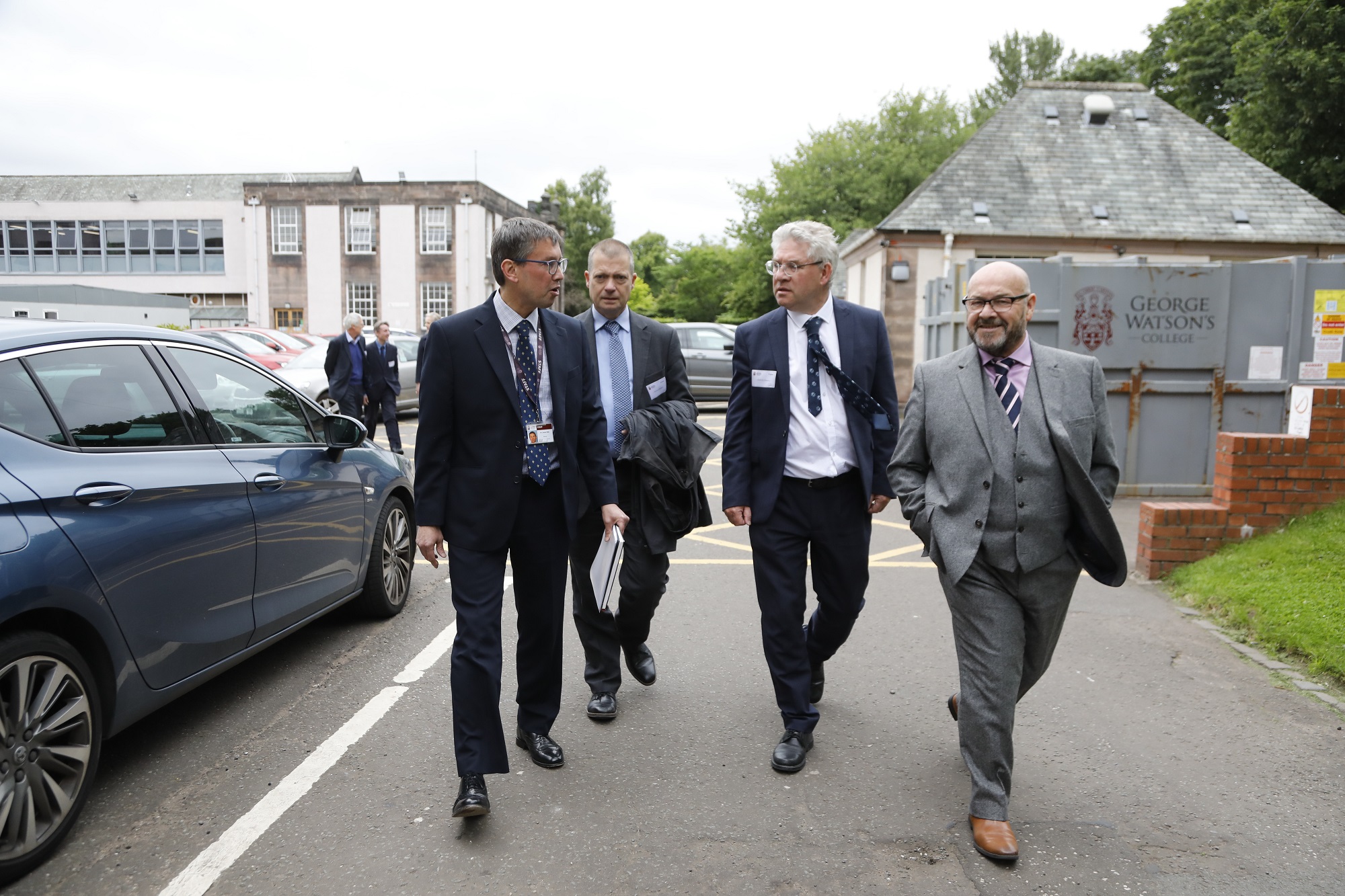
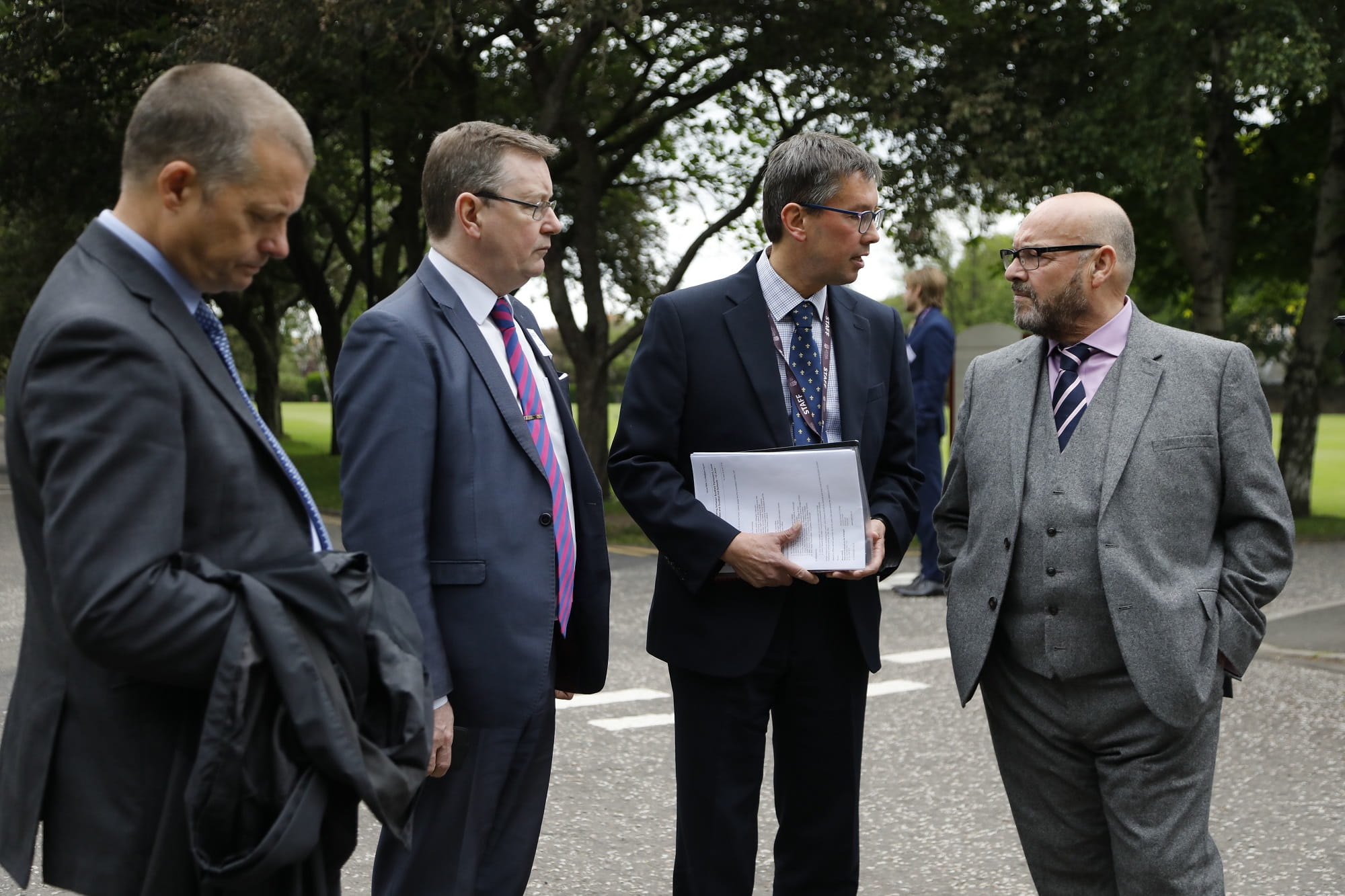
Members' Bills
Period Products (Free Provision) (Scotland) Bill
This Member's Bill was introduced in the Scottish Parliament by Monica Lennon on 23 April 2019. It sought to make provision for free period products for anyone who needs them. The Committee's Stage 1 report on the general principles of the Bill was published on 5 February 2021.
European Charter of Local Self-Government (Incorporation) (Scotland) Bill
This Member's Bill was introduced in the Scottish Parliament by Andy Wightman on 5 May 2020. It sought to incorporate the European Charter of Local Self-Government into Scots law. The Committee's Stage 1 report on the general principles of the Bill was published on 22 January 2021.
Travelling Funfairs (Licensing) (Scotland) Bill
This Member's Bill was introduced in the Scottish Parliament by Richard Lyle on 29 April 2020. It sought to change the licensing system for operators of travelling funfairs in Scotland. The Bill aims to make the system quicker, simpler, cheaper and more uniform across council areas. The Committee's Stage 1 report was published on 19 March 2021.
This Member's Bill was introduced in the Scottish Parliament by Pauline McNeill on 1 June 2020. It sought to impose caps on rent rises for private residential tenancies, allow private residential tenants to ask for a “fair open market rent”, and require private landlords to enter information about the level of rents they charge in a public register. The Committee did not report on the general principles of the Bill, but agreed to reflect on some of the key themes arising from the evidence received in its legacy report.
Post-Legislative scrutiny
The Committee also undertook some post-legislative scrutiny of the following Acts stemming from legislation passed in previous sessions:
Post-Legislative Scrutiny: Disabled Persons' Parking Places (Scotland) Act 2009
The Committee heard from disabled people and private car park operators on their views on how the act was working in practice. The Committee's report was published on 13 September 2017.
Post-Legislative Scrutiny: High Hedges (Scotland) Act 2013
The Committee heard from those who had applied for high hedge notices and local authorities on how the act was working in practice. The Committee's report was published on 10 September 2017.
Post-Legislative Scrutiny: Community Empowerment (Scotland) Act 2015
The Committee heard from members of the public, community groups, organisations which provide support to communities, local authorities and the Cabinet Secretary about how well parts 3 (participation requests) and 5 (asset transfers) of the act were working in practice. The Committee's report was published on 26 February 2021.
Subordinate Legislation
The Committee considered 161 Scottish Statutory Instruments over the session. 35 Affirmative and 126 Negative. Below are some notable SSIs:
The Council Tax (Substitution of Proportion) (Scotland) Order 2016. This order reformed Council Tax by increasing the ratios of the upper bands (E-H) relative to Band D. This means that bills for Band E will increase by 7.5%, Band F by 12.5%, Band G by 17.5% and Band H by 22.5%. No additional bands have been added and the ratios for Bands A-D remain unchanged.
Community Empowerment (Scotland) Act 2015. A package of affirmative and negative instruments were laid enacting various aspects of the Community Empowerment (Scotland) Act 2015. To inform its scrutiny, the Committee heard from Community Bodies who might wish to use the new powers and public bodies who may be affected by the legislation, prior to hearing from the Minister for Local Government and Housing.
The Housing (Scotland) Act 1987 (Tolerable Standard) (Extension of Criteria) Order 2019, which sought to ensure that all dwellings have adequate smoke and fire alarms.
The Freedom of Information (Scotland) Act 2002 (Designation of Persons and Scottish Public Authorities) Order 2019, which made housing associations subject to freedom of information legislation.
The Relevant Adjustments to Common Parts (Disabled Persons) (Scotland) Regulations 2020, which set out the process by which a disabled person may carry out relevant adjustments to common parts of premises if the disabled person uses or intends to use the premises as their only or main home, and a majority of the owners of the common parts consent.
The Energy Efficiency (Domestic Private Rented Property) (Scotland) Regulations 2020, which introduce measures to improve the energy efficiency of certain private rented property in Scotland.
The Fuel Poverty (Additional Amount in respect of Remote Rural Area, Remote Small Town and Island Area) (Scotland) Regulations 2020, which makes provision for the definition of Remote Rural Area, Remote Small Town or Island Areas as areas where households should have uplifts to the UK Minimum Income Standard (MIS) applied, for the purposes of calculating fuel poverty.
The Housing (Scotland) Act 1987 (Tolerable Standard) (Extension of Criteria) Amendment Order 2020 (SSI 2020/draft); and Housing (Scotland) Act 2006 (Modification of the Repairing Standard) Amendment Regulations 2020 (SSI 2020/draft). These two instruments which were directed towards the same common purpose: to have a common new minimum standard for fire and smoke detectors across all housing, regardless of whether the house is owner-occupied or rented in the social or private sector. The Parliament had already agreed to this change, but the instruments jointly moved back the date on which this change would come into force.
The Property Factors (Code of Conduct) (Scotland) Order 2021. A statutory framework that will encourage transparency and set standards for how a property factor should deliver their services. If a home owner believes that their property factor has not complied with the Code, once they have given the factor a reasonable opportunity to resolve the issue, they can apply to the First Tier Tribunal for Scotland for a determination of whether the property factor has failed to comply with the Act.
Key inquiry work and issues to take forward in Session 6
Local Government
Budget Scrutiny
A large area of the Committee's scrutiny of the local government sector in Session 5 has been on the budget. It has taken a "full-year" and strategic approach to its budget scrutiny of the sector, as envisaged under the revised process recommended by the Budget Process Review Group's report of June 2017.
A key focus of the Committee's scrutiny has been the long-term challenges to local government’s financial sustainability. These include changing demographics, changes in the local government staffing profile, the increased burden of legal duties of local authorities, structural barriers to long-term financial planning, and above all, a consensus that councils increasingly must do “more with less”. We have sought to probe what consequences these have for future local governance.
In our last budget scrutiny letter prior to the pandemic, we sought further information from the Cabinet Secretary on how the following issues (and more) would be addressed in the local government budget settlement:
Its plans to provide more concrete information on multi-year settlements and its response to concerns in relation to de-coupling revenue from capital budgets.
Whether there is scope to make available additional funding for preventative spending in addition to the existing budget.
Whether it is giving consideration to further reform of Council Tax.
Whether it agrees that more discretion should be given to local government to decide what percentage of income it can raise and how this could be achieved.
What it has done to explore alternative models of delivery and where these could be used.
Evidence that current procurement rules and practices can be a barrier to effective delivery of services.
Whether it is aware of the social bridging finance model and, if so, what if any plans it has for its use and expansion.
Whether it has considered the use of incentives for local authorities to more effectively deliver outcomes and how this could be achieved.
Since the start of the Session, the Committee has consistently called for greater transparency in the draft budget and the allocations to local authorities in order to support scrutiny of exactly which funding local authorities can be expected to receive, from what sources and with what conditions. Since then, the level 3 breakdown of the local government budget, now contains additional tables which enable readers to track funding from the Budget to the Local Government Finance Circular and to see the full picture of funding outside the local government finance settlement. These changes are welcome and have greatly assisted in budget scrutiny.
However, we have heard from local authorities that more clarity on the impact of policies on existing services and how these relate to the National Performance Framework would be useful. It would also be helpful if the Scottish Government could explicitly set out the funding for core services which is not ring fenced for specific services. Our successor Committee may wish to pursue this further as part of its own budget scrutiny.
We heard from the Accounts Commission that the funding formula for the 32 local authorities is founded on a needs-based formula which hasn't been looked at fundamentally for 10 years or more. The Accounts Commission have recommended that "The Scottish Government and COSLA should assure themselves that the funding formula remains fit for purpose in a changing landscape for local government. It is important that it is suited to improving outcomes for local communities and sensitive to priorities such as reducing inequality within and across council areas." So far, we have had no indication from COSLA or the Scottish Government that a review will be taken forward, and it is not clear whether discussion on the funding formula will be a feature of the local governance review or not.
Our successor may wish to press the Scottish Government on whether such a review will be taken forward and whether discussion on the funding formula will be a feature of the local governance review.
Since March of 2020, much of our budget work would be overshadowed by the coronavirus. In June 2020, we agreed to make the financial impact of the pandemic on local government the theme of the final year of the Session's budget scrutiny. In our final letter to the Cabinet Secretary, we noted the challenges of maintaining a long-term view whilst a public health emergency is unfolding. Most councils were in no position to plan far into the future and their aim is to get through the pandemic with services largely intact and without dipping too deeply into their reserves.
We acknowledged that there was a need to be pragmatic and flexible, so as to be responsive to further developments, whether positive or negative. It was also noted that current priorities were maintaining key local services, protecting the most vulnerable in our communities, protecting the jobs of workers delivering local services, and ensuring that their work environment is as safe as possible.
We recognised that the crisis had challenged silo thinking and enabled new forms of partnership working to emerge, with a renewed focus on outcomes rather than processes. There have been huge advances in the delivery of services online and much innovative thinking. There are further opportunities to harness these positive energies so as to break down further barriers to effective local service delivery and find new ways to invigorate local democracy.
Amongst other issues, we sought further information from the Scottish Government on the following:
Whether it agreed with Cosla that the crisis has caused a £500 million “gap” in local government resources?
An assessment of the resilience of local services in view of an increase in infections and hospitalisations (at that stage in the pandemic), and the imposition of stricter lockdown rules.
Whether it was satisfied that all front-line workers (including volunteers) providing local services have the necessary PPE to carry out their role?
Whether the crisis has underlined the benefit of there being longer-term indicative budgets for local government, to help them plan better for the longer term, including for instance, preparing for emergencies?
An update on discussions between the Scottish Government and Cosla on a fiscal framework.
Whether it may be time to review the local government funding formula once the current public health emergency is over?
An update on the local governance review and whether it had been revised in the light of lessons being learned from the current crisis?
Whether there was a requirement for a “back to basics” review of social care delivery in Scotland, including the pay and status of workers in the sector.
Whether it agreed with views from local government that the “new normal” after the pandemic is likely to involve a permanent shift to more online forms of service delivery, and a “blended” model of mixed working at home and in the office? If so, what work needs to be done at strategic level by central and local government, and the voluntary sector, to facilitate these new forms of working and to address the downsides, for instance the risk of digital exclusion?
Our successor Committee may wish to pursue some of these issues further as part of its own budget scrutiny, and how well-equipped local authorities will be able to cope with long-term financial pressures as we emerge from the pandemic.
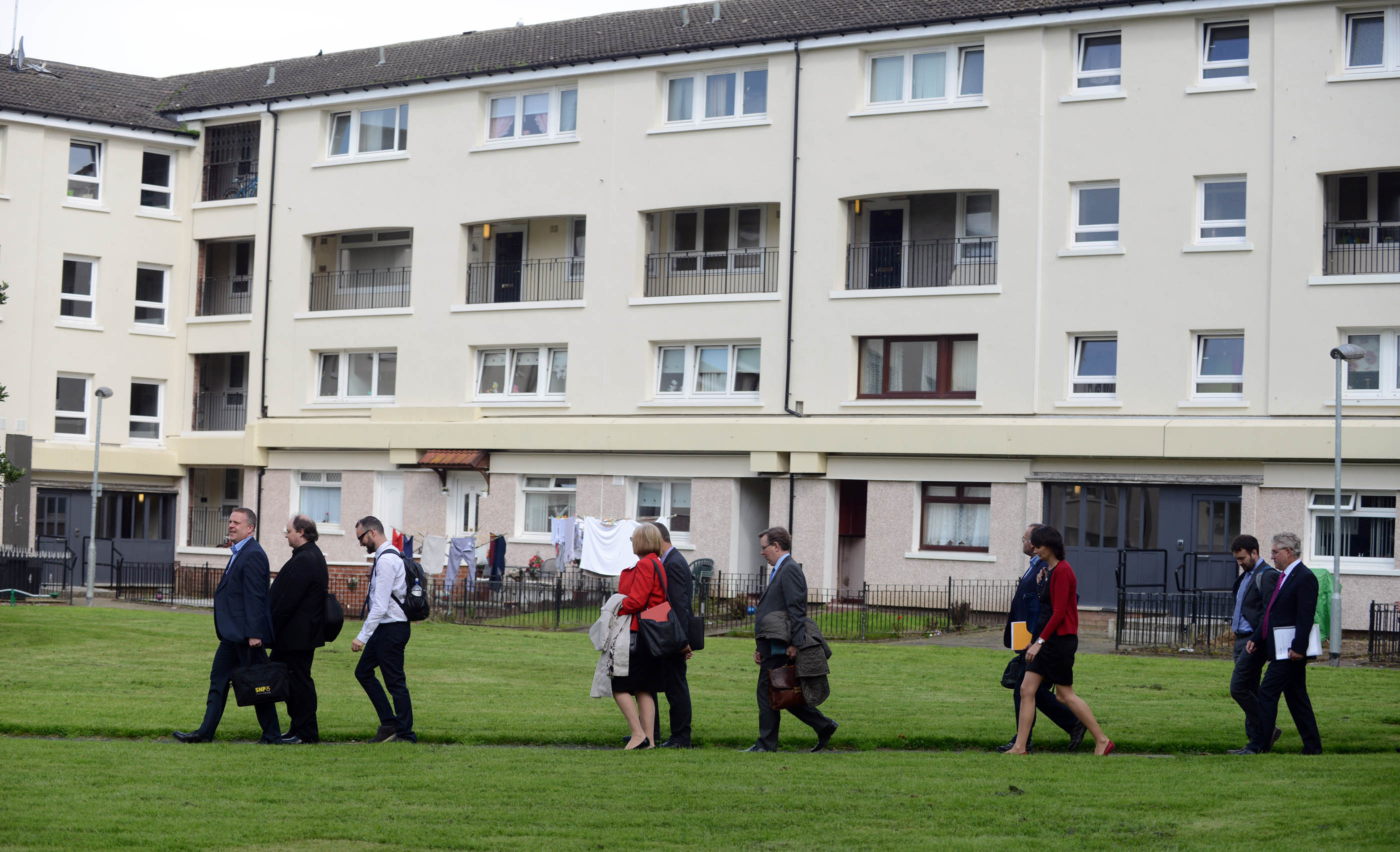
Scottish Local Government Elections and Voting
In advance of the Scottish local government elections in 2017, the Committee undertook some work on how voter turnout could be increased for the Scottish local government elections. It heard from Academia, the Electoral Reform Society Scotland, the Modern Studies Association, UNISON Scotland, Shelter Scotland, MECOPP and ENABLE Scotland on how all factions of Scottish Society could be encouraged to vote. It followed up this session by hearing from the Electoral Commission Scotland, Education Scotland, the Electoral Management Board for Scotland and from an Electoral Registration Officer, followed by the Minister for Parliamentary Business. The Committee notes that voting in local authority elections was up around 10 per cent in 2017, compared to 2012 figures.
The Electoral Commission's report on the local government election of May 2017 was published on 11 September 2017. Following its publication the Committee requested, and was provided with, additional detailed ward level electoral data and public opinion data. The Committee took evidence from the Electoral Commission on its report at its meeting on 7 February 2018.
Following this session the Committee wrote to the Minister for Parliamentary Business regarding the administration of local government elections and other matters such as the extension of proxy voting due to unforeseen caring responsibilities or to those who have had a bereavement in the family, and candidate regulation. The Committee also requested information on which bodies have a key role on increasing the diversity of the electorate and candidates and; what work is being undertaken to improve monitoring in this area to understand any barriers to improving voter turnout. In response to the Convener's letter the Minister for Parliamentary Business confirmed that he would look again at extending emergency proxy voting and, with the Commission, identify how more information on the diversity of voters might be gathered. The Electoral Commission also wrote to the Committee on issues discussed at the meeting including its work in understanding the barriers to democratic participation amongst those with protected characteristics.
Our successor Committee may wish to do its own similar work on improving voter turnout in local elections, including hearing from the Electoral Commission at an early stage on any lessons learned from running the Scottish Parliament elections in 2021 during the pandemic.
Housing
A key area of the Committee's work this Session has been housing. The Committee undertook an inquiry into homelessness, empty homes and the First-Tier Tribunal. It also led on scrutiny of the Fuel Poverty (Target, Definition and Strategy) (Scotland) Bill and legislation introduced towards the end of the session to regulate short-term letting. This part of the report highlights some key issues identified in its scrutiny of housing matters and some issues that the Session 6 Committee might wish to take forward.
As highlighted earlier in the report, the Committee did not have sufficient time to produce a Stage 1 report on the Fair Rents (Scotland) Bill and felt that it had insufficient evidence to come to a decision on the general principles. The Bill and the evidence received, however, raised some important issues and the Committee therefore agreed to highlight some of these in its Legacy report and link this to other housing scrutiny work carried out by the Committee, where possible. The Committee, for example, supported the need for better data on private rents, a key part of the Bill, and this is explored further below.
Housing Supply and related Committee work
A common issue raised throughout the Committee's work on housing across the session, has been how housing supply impacts, or is interconnected to, a number of wider issues in the sector, such as an increased reliance on the private rented sector due to a lack of social housing, rising rents, homelessness and the short-term letting sector. This was further emphasised during our scrutiny of the Fair Rents (Scotland) Bill.
The Committee heard that the Bill did not address underlying problems in the housing system, including the supply of affordable accommodation. The Committee heard that some people were living in private rented housing not through choice but because of limited other affordable housing options. There was some agreement that the private rented sector was not always the best place for the most vulnerable people and poorer members of society in Scotland to live in. Witnesses advocated for a larger social rented sector to provide greater choice.
For example, in their oral evidence on the Fair Rents (Scotland) Bill the Scottish Association of Landlords said-
…over the years, we have expected the private rented sector to pick up the slack from all the rented sectors. We now find that some of the most vulnerable people live in the private rented sector, which is not the most appropriate place for them to live. We should have an affordable social housing sector, which would best meet their needs, so that the private rented sector returns to becoming the sector of choice rather than the sector of last resort. That would be good for tenants and landlords.
We also heard that some private renters are paying a high proportion of their income on rents and affordability may be a problem. Douglas Robertson quoted evidence from Nationwide Foundation research which identified, from a survey of tenants, that "12 per cent of tenants pay less than 20 per cent of their net income on renting, 30 per cent record that they pay between 20 and 30 per cent, and 50 per cent that they spend more than 30 per cent of their income on housing”. He said that, “the relationship between rents and what people are earning, or are able to earn, is really out of kilter.”
We heard that this often finds people "trapped" in the private rented sector, as those who wish to become a homeowner are unable to save for a deposit to get on to the housing market. For example, Gordon Maloney of Living Rent said-
A tenant who pays £1,000 a month in rent as opposed to £400 or £500 for a council flat cannot put money towards savings that could form a deposit on a house purchase. When we talk about rebalancing the sector, having affordable rents that allow tenants to put money aside is a crucial part.
Short-term Lets
Similarly, during our scrutiny of the Fair Rents (Scotland) Bill, the Committee heard concerns that the growth in short term lets had a negative impact on the supply of affordable housing in some areas. In relation to short term lets, The Scottish Government brought forward legislation to put in place new rules to try to find the right balance between the needs of local communities – for instance in relation to having peaceful neighbourhoods and available housing for local people – and the economic and social benefit from having a thriving tourist industry in an area. The proposed changes involved the creation of a licensing scheme for local authorities to regulate properties being used for short-term letting. They would also be given the ability to introduce short-term let control areas. There is a definition of short term lets set out in the new rules.
The Committee held a call for views on the new measures, due the great deal of public interest on the issue, receiving 300 responses were received. All can be found via this link on the Short-term Letting webpage. It took evidence from the Minister on the proposals at its meeting on 3 February 2021.
Owners of guest houses and bed and breakfasts had expressed their concerns to the Committee over the cost of obtaining a license. Some members of the Committee also voiced their concern that the Scottish Government would have to give consent over the ‘control areas’ and that each Local Authority should have ultimate control. Some also felt that the proposed rules were suited to tackle the rise of urban based short-term lets and that established, traditional bed and breakfasts should not be included. The Committee were not unanimous in their support for the proposals, but following a vote, it reported to Parliament on 6 February 2021 that the legislation be approved. Due to the concerns raised, however, the Scottish Government ultimately decided to withdraw part of the legislation and re-lay these regulations in Session 6.
The Committee with responsibility for housing in Session 6 will be required to look at any revised proposals relating to the regulation of short term lets. It may wish to undertake its own detailed scrutiny of short-term letting prior to the laying of any revised proposals.
Empty homes
Another key issue which could affect housing supply is the problem of empty homes, which was the focus of an inquiry in 2019. At the time of the inquiry, the most recent figures showed that around 83,435 of 2.62 million dwellings were empty homes. We explored:
The extent of, and reasons for, empty homes in Scotland;
How effective existing legislation and policy is at addressing the problem of empty homes;
What more can be done to prevent homes remaining empty and to encourage owners to bring them back into use.
The Committee's report was published on 10 November 2019. In it, we called for the introduction of compulsory sales orders to tackle the blight of empty homes and for Councils to stop using the council tax levy, which allows local authorities to remove the discount on empty properties and charge a council tax increase of up to 100%, as a revenue raising tool. The Committee also highlighted the challenge faced by rural communities in dealing with empty homes. It also called for the Scottish Government to review the Rural and Islands Housing Fund.
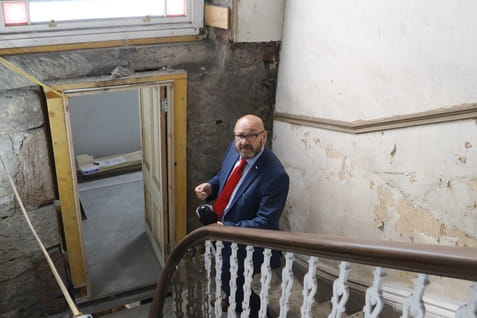
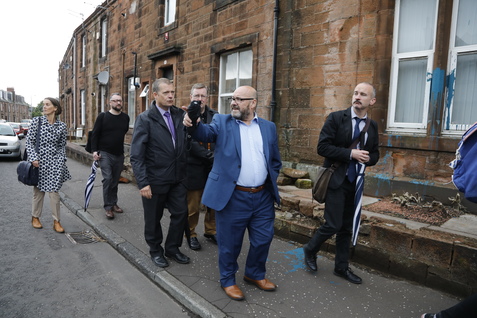
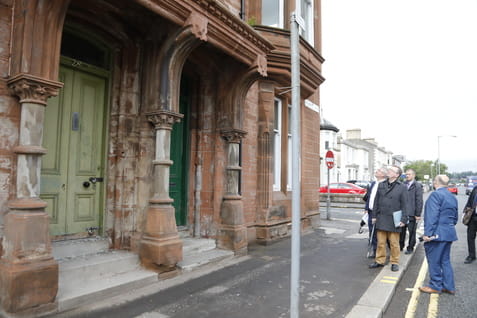
Scottish Government measures to tackle the issue of supply
To address the issue of housing supply, the Scottish Government plans to increase housing supply in all tenures through its More Homes policy. This included setting the target of delivery of 50,000 affordable homes by March 2021. The Scottish Government has made substantial investment towards this target during the Parliamentary Session. The Right To Buy social rented houses ended in 2016 so these factors mean that social sector stock is gradually growing again. However, the impact of the coronavirus pandemic has affected progress towards the target as work on site was delayed.
The Committee held a number of evidence sessions with the Minister for Local Government, Housing and Planning on progress towards meeting this target and the Joint Housing Delivery Plan for Scotland 2015-2020.vii Progress against the target has been a key consideration of the Committee's budget scrutiny and it also undertook some work to look at Strategic Housing Investment Plans near the start of the session. These are prepared by local authorities to set out strategic investment priorities for affordable housing over a 5-year period to achieve the outcomes set out in the local housing strategy
During our last evidence on the budget, the Cabinet Secretary for Communities and Local Government said that the 5-year budget for housing is more than £3.5 billion and it is expected that more detail about the approach to future investment will be set out in the Housing to 2040 strategy. For example, the Cabinet Secretary said that part of the Scottish Government's vision was to enable much more mixed communities and ensure that communities are vibrant and thriving.
The Session 6 Committee might wish to make the issue of affordable housing supply and its wider impacts a key priority for scrutiny. It should continue to hold the Scottish Government to account on its progress towards increasing housing supply and the provision of affordable housing where it is needed, measures to tackle rising rents and the reliance on the private rented sector for some of the more vulnerable members of society and the issue of empty homes.
Fair Rents (Scotland) Bill – data issues
During its Stage 1 scrutiny of the Bill, the Committee heard support for improved data collection on private rent levels. The Scottish Government’s current data collection on private rents is focused on advertised rents, not achieved rents, and is not capable of providing data at a council area or below. The lack of adequate data was one of the main reasons cited as to why councils have been unable to make an application for a rent pressure zone in their areas.
For example, Citizen's Advice Scotland said-
My hope is that, along with issues around data, the bill can inform better policy making in the future and draw out evidence from witnesses such as the evidence that you have heard today. Fair rents, market rents and affordable rents are different, and we need to get better at deciding what we are trying to pursue and what the best mechanism is in that regard.”
ALACHO added-
Our view is that we need a comprehensive review of the data requirements at national level so that we can make properly informed policy decisions about the intervention in the private rented sector. We also need that at local level to support regulatory oversight and intervention. We need a comprehensive review of our data sets and data gathering.
The Minister for Local Government, Housing and Planning acknowledged the need for better data on private rents and outlined the Scottish Government’s plans, as part of its Housing to 2040 strategy, to develop a new system of private rent data collection.
We strongly urge the successor committee to monitor the Scottish Government’s commitments to implement a new system for tracking private rents and ensure that the data from this system is effectively used in the development and monitoring of future policy.
Monitoring of Private Housing (Tenancies) Scotland Act 2016
During Session 5, the Private Housing (Tenancies) Scotland Act 2016 was implemented and the new private residential tenancy introduced. During our scrutiny of the Fair Rents (Scotland) Bill, the Scottish Government said that it had implemented a monitoring and evaluation framework to examine the impact and outcomes of the private residential tenancy on tenants and landlords. The Nationwide Foundation is also carrying out research over a three-year period, looking at both landlords’ and tenants’ experience of the new tenancy regime.
The successor Committee may wish to take evidence from the Scottish Government and the Nationwide Foundation on their work examining the impact of the Private Housing (Tenancies) Scotland Act 2016.
First-tier Tribunal for Scotland (Housing and Property Chamber)
The First Tier Tribunal for Scotland (Housing and Property Chamber) (the Tribunal) was set up to deal with a variety of disputes and issues from landlords, tenants, letting agents and factors. The Committee held a one-off evidence session on 11 March 2020 to examine how well the Tribunal was working. We explored:
How the Tribunal is making improvements to deal with an increase in private rented applications, which would previously have been heard at the Sheriff Court.
How the Tribunal is addressing delays in the time taken from receipt of an application to reaching an outcome.
The process by which enforcement orders can be made against property factors which fail to comply with the Property Factors' Code of Conduct.
Some of the issues raised during this session, were also raised during scrutiny of the Fair Rents (Scotland) Bill. For example, we heard some evidence that it was difficult for tenants to take cases to the Tribunal - they found it difficult to understand the legislation and the process. Living Rent said-
We are concerned that the processes around the First-tier Tribunal for Scotland Housing and Property Chamber remain too difficult and complex for the majority of tenants. Significant numbers of tenants are going unrepresented in both case management discussions and hearings, even in cases where they have initiated proceedings. It is clear that the support available to tenants in making applications and pursuing matters through the Tribunal is insufficient.
Citizen's Advice Scotland said -
…it is the case that tenants working on their own will struggle to follow through on all the information and processes required at a tribunal. They can do that if they have access to advice and support, but many do not. They certainly do not have professional representation whereas letting agents and landlords more often do have professional representation at the tribunal.
The successor committee may wish to revisit the issue of access to justice for tenants and landlords to the First-tier Tribunal (Housing and Property) Chamber. It could consider whether there is scope for improving the accessibility and operation of the Tribunal process. This could link in with any further work the successor Committee chooses to do on implementation of the Private Housing (Tenancies)(Scotland) Act 2016 or work on enforcement of private rented regulation more generally.
Homelessness
The Committee undertook a major inquiry into the causes of, and the long-term solutions to, homelessness in Scotland.
During evidence sessions, the Committee heard directly from people who have experienced homelessness, including from care-experienced young people. The Committee also visited charities providing homelessness services throughout Scotland to explore how people access these. Additionally, as part of the inquiry the Committee visited Finland to learn about its approach to tackling homelessness, particularly its use of the Housing First approach. The Housing First model provides a house and a permanent tenancy unconditionally to those who present as homeless and have multiple and complex needs. They are also provided with the right level of support and care to keep them successfully in their tenancy.
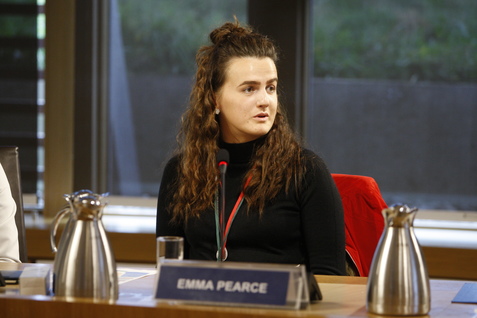
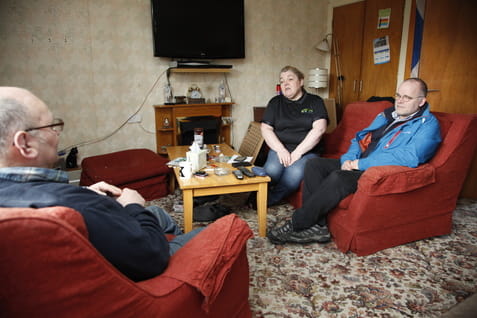
The Committee heard concerns that not every homeless person was getting the support they required and issues with the supply and quality of temporary accommodation. It reported on 12 February 2018 and among several recommendations, a key one was that the Scottish Government, in partnership with local government, should implement a Scottish Housing First policy. In its response to the Committee's report the Scottish Government confirmed that it will implement, among several other measures, a Scottish Housing First policy.
Since the inquiry, the Committee has undertaken ongoing monitoring work on the Scottish Government's progress in implementing rapid rehousing transition plans (a housing-led approach for people experiencing homelessness, akin to housing first) and the Ending Homelessness Together Action plan.
More recently, a focus of the Committee’s scrutiny of the Scottish Government’s response to Covid-19, has been on the impact of the pandemic on homelessness people, and the Scottish Government’s plans to implement its Ending Homelessness Together Action plan. Since the pandemic began, local authorities and third sector partners have provided homeless people, previously sleeping rough or in unsuitable accommodation with hotel rooms, short-term lets and other temporary accommodation to allow them to self-isolate, as this can be difficult in night shelters. It was noted that measures taken during the pandemic had reduced rough sleeping and a key focus has been to explore examples of good practice and how any gains made could be sustained as we emerge from the pandemic and beyond.
Homelessness has also been a key focus of the Scottish Housing Regulator given that it has a role to safeguard and promote the interests of homeless people. The Committee regularly questions the Regulator about the issue during its evidence sessions on its annual report and performance. The Committee also lead in scrutinising recent legislation to temporarily pause measures which would prevent anyone experiencing homelessness from being placed in unsuitable accommodation (such as a hotel or bed and breakfast) for more than 7 days, during the pandemic.
The Committee's successor should continue scrutiny of the Scottish Government’s plans to end homelessness. It could take evidence from councils, other relevant bodies and homeless/previously homeless people around progress with implementing the Ending Homelessness Together Action plan and implementation of rapid rehousing plans.
Fuel Poverty
The Committee also lead in scrutiny of the Fuel Poverty (Target, Definition and Strategy) (Scotland) Bill. The Bill, introduced on 26 June 2018, sets a target that no more than 5 per cent of households should be living in fuel poverty by 2040. It also sets out a new definition of fuel poverty, which in turn is based on the setting of a defined minimum income standard (MIS). Previous targets to tackle the issue of fuel poverty had not been met.
The Committee published its Stage 1 report on 29 January 2019. The Committee welcomed the Bill, noting its potential to change lives for the better, but called for several changes. Key recommendations included a call for a separate target to focus on people living in ‘extreme fuel poverty’ i.e. those spending more than 20 per cent of their income on heating their home. It also called for a separate MIS to be applied to those living in rural and island areas, to reflect the higher costs of living in those areas, and the generally higher rates of fuel poverty in those communities. The underlying aim behind these and other recommendations was to ensure that attention would be focused on those with the greatest need.
The Scottish Government responded to the Committee's report on 5 February 2019. A Stage 1 Debate on the Committee's report was held in the chamber on 20 February 2019.
The Committee considered the Bill at Stage 2 on 27 March and 3 April, during which it considered just over 100 amendments, some of which touched on the areas set out above. On introduction, the Presiding Officer had determined that, the direct costs associated with the Bill being relatively low, no financial resolution for it was required. Stage 2 subsequently saw the application of a rule preventing amendments that would take the Bill above the "no-resolution" threshold from being voted on, as the Scottish Government had given no undertaking to lay a resolution to enable these amendments to come into force. A small number of non-government amendments were affected by this rule, meaning that they could be discussed but not disposed of. The Minutes of these meetings, which set out the Committee's decisions in detail are available on the Bill page here.
The Government’s new Fuel Poverty Strategy was due to be published in September 2020, but has been delayed due to COVID. In January 2021, the Government confirmed its intention to write to the Committee to confirm details of the process and timetable for producing the Strategy, including in relation to any consultation undertaken. At the time of writing, this had not been received.
Once the new Fuel Poverty Strategy has been produced, our successor Committee might wish to hear from Ministers, campaign groups, house owners, tenants and other stakeholders about what needs to be done to ensure all Scottish households live in affordable warmth by the target date.
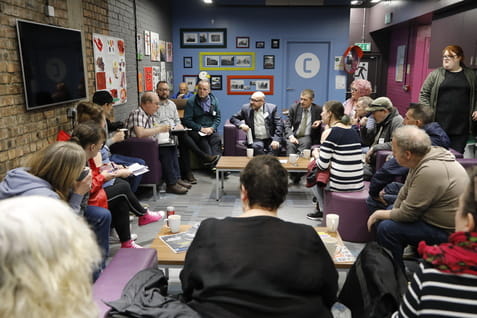
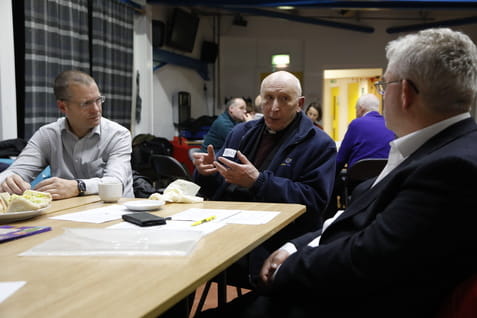
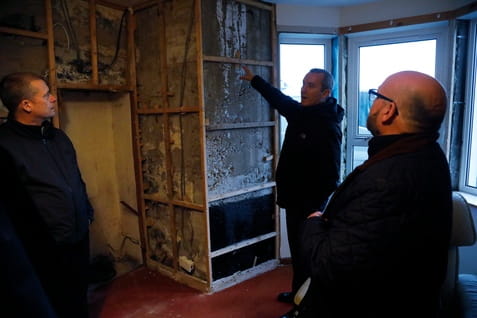
The Property Factors (Code of Conduct) (Scotland) Order 2021
The Minister for Local Government, Housing and Planning wrote to the Committee on 7 December 2020 and 15 January 2021, in relation to work the Scottish Government is undertaking to amend the Code of Conduct. The Minister initially stated that there should be no change made to the definition of a factor as a result of a recent judgement by the Inner House of the Court of Session on Proven Properties Ltd. He said that the Scottish Government intended to lay a modification order to make a smaller change to the definition, in respect of property factors who have been removed from the Register, to ensure that they are bound by the Code while any outstanding cases are heard by the First Tier Tribunal.
The Committee also received correspondence from a member of the public who was directly impacted by the Proven judgement and disagreed with the Scottish Government's approach. Subsequently, however, the Minister reversed his above decision, setting out in his 15 January letter that he had now concluded that a wider look at operation of the property factor sector is needed and that the review would take place over the coming year. He would no longer lay a narrowly defined modification order and that work on this should be incorporated in wider policy development on property factors going forward.
The successor Committee might wish to take note of this correspondence in relation to any scrutiny it undertakes pertaining to the above review of the Property Factors Code of Conduct. Clerks will ensure that all correspondence associated with the above is shared with the successor Committee in the next parliamentary session to inform any scrutiny.
Building Regulations and fire safety
The Committee began its work on the building standards verification scheme in 2016, focusing on a proposed rises in fees and whether the current system afforded suitable protections for home buyers. This work coincided with a review by the Scottish Government which announced that Local Authorities would be sole verifiers for building standards and not opened up to other organisations. The Committee issued a call for views and an online survey to ensure that it heard as wide a range of views as possible. The Committee then heard privately by those who had some issues with the current process, followed by a public session with those in the building industry.
Continuing its work from February 2017, in early June 2017 the Committee expanded its work on the building standards verification scheme to include consumer rights in relation to building work and take account of the findings in the Report on the Independent Inquiry into the Construction of Edinburgh Schools by Professor John Cole CBE.
On 21 June 2017, the Committee widened further the scope of this work to include the fire safety aspect of building regulations following the tragic fire at Grenfell Tower in London. In September 2017, the Committee took evidence on fire safety from key stakeholders concluding with evidence from the Minister for Local Government and Housing on the progress of the recently established Ministerial Working Group on Building and Fire Safety.
The Committee reported its initial views on 30 October 2017, calling for more support for homebuyers in the event of building defects and poor build quality. The Committee also identified a number of improvements that could be made to building regulations and fire safety standards. The Committee welcomed the establishment of the Ministerial Working Group on Building and Fire Safety and will continue to monitor its progress and periodically take evidence from the Scottish Government on the outcomes of the group's planned activities.
In the Scottish Government's response to the report the Minister confirmed that the recommendations would be fully considered recognising that many of the Committee's concerns would be taken forward as part of the work of the Ministerial Working Group. The Parliament debated the Committee's Report on 23 November 2017. During the debate the Minister for Local Government and Housing confirmed the ongoing work of the Ministerial Working Group and agreed with the Committee on the importance of the role of Clerks of Works. The Minister confirmed that he expects this role and the roles of other professionals to be considered by the working group.
The Committee took oral evidence from the two group Chairs, from the Minister for Local Government, Housing and Planning and from the Chair of the UK Independent Review of Building Regulations and Fire Safety, at its meeting on 5 September 2018. The focus of this session was to consider lessons learned across the UK from the fire, as well as to discuss any significant areas of significant divergence between the different regulatory regimes. The Committee continued to monitor progress in implementing the Groups' recommendations, as well as any further policy developments in response to the Grenfell tragedy, over the remainder of this Parliamentary Session.
On 20 November 2019, it heard from the Association of British Insurers; the Royal Institution of Chartered Surveyors; Professor Jose Torero; and the Fire Prevention Association. On 22 January 2020, the Committee heard from the Minister for Local Government, Housing and Planning, Kevin Stewart and Scottish Government officials. On 26 February 2020, the Committee took evidence from Phil Diamond Chartered Building Surveyor, UK Finance, Royal Institution of Chartered Surveyors, Law Society of Scotland and Property Managers Association Scotland.
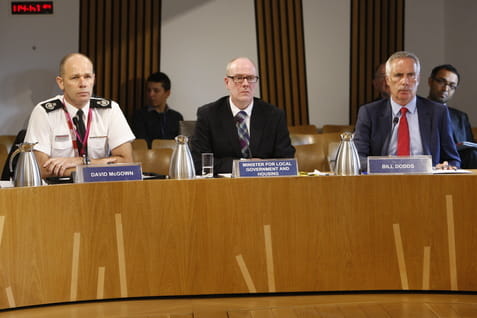
On 19 June 2020, the Committee took evidence on the High Rise Inventory and apartment buildings with external wall systems from the Fire Protection Association, the Scottish Fire and Rescue Service, High Rise Scotland Action Group, Royal Institution of Chartered Surveyors and Homes for Scotland. We heard from the Minister again on 4 September 2020. Finally, the Committee held an evidence session focused on zero-value homes with National House Building Council Scotland, the Royal Incorporation of Architects in Scotland (RIAS) and Building Standards Compliance and Enforcement Review Panel on 11 November 2020.
During these sessions, the Committee has explored some of the following issues:
The concept of enhancing professional competency in the construction industry, particularly in relation to the assessment of fire risk in “real life” situations versus adopting a stricter regulatory approach to minimise risk;
The efficacy of existing tests for fire safety in the construction industry, in particular the British Standard [BS] 8414 test and the pros and cons of “blanket” bans on certain materials;
Whether and how modifications to buildings that may affect the level of fire risk are monitored, particularly in relation to apartment buildings;
The reasons behind some apartment buildings being “zero valued” by surveyors because of a perception that they do not fully meet fire safety requirements, and how this can be resolved;
The impact on home owners affected by the worry and uncertainty of living in a “zero valued” home and the current lack of support for moving ahead;
The support available to home owners in relation to the EWS1 form process;
The importance of having good quality, interlinked smoke and fire alarms in all Scottish households; and
The overall direction of Scottish Government fire safety policy post-Grenfell.
All of the associated evidence relating to the Committee's scrutiny of building regulation and fire safety is available on its webpage here.
The Session 6 Committee might wish to consider taking forward some of the following issues in any scrutiny it undertakes in relation to building regulations and fire safety:
New Housing Ombudsman: Building on the work the current Committee has done on building standards and the verification process, the UK Government intends to introduce a nationwide New Homes Ombudsman. There will likely be a Legislative Consent Memorandum on this at some point.
Zero valued homes: The issue of cladding systems, mortgage valuations, EWS1 forms and grants to support cladding removal and replacement may remain an issue for the foreseeable future.
Building standards verification: Much of the Committee’s building standards work over the session has focused on the issue that what gets built quite often does not match the plans that have been approved by building standards verifiers. This can result in poor quality homes, issues with PFI/PPP schools and several new hospital buildings. Until the verification system is improved and incentives for developers to build to the plans increased, these are likely to remain issues of concern.
The role of the private sector in building standards verification.
Planning
Planning (Scotland) Bill
The Committee published its Stage 1 report on the Planning (Scotland) Bill on 17 May 2018. All evidence associated with the Committee's scrutiny of the Bill is available here.
Amongst a number of recommendations, the Committee called on the Government to set out the purpose of planning on the face of the Bill, to provide further support to disadvantaged communities to help shape planning decisions in their area, and to include an "Agent of Change" principle in the Bill; a principle that puts the onus on developers to mitigate pre-existing noise impacts in order to protect cultural venues, such as local music venues.
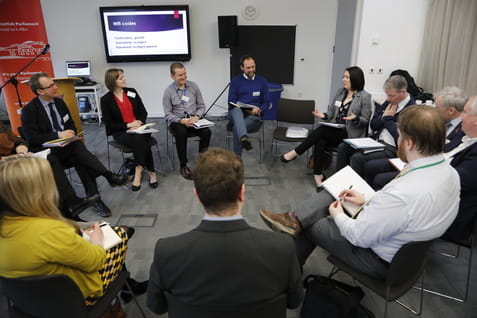
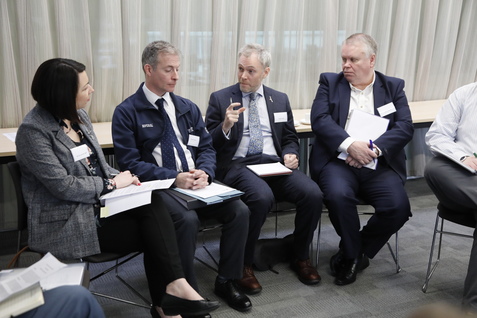
The Scottish Government responded to the Committee's Stage 1 report on 24 May 2018 and the Stage 1 debate was held in Parliament on 29 May 2018.
The Committee considered the Planning (Scotland) Bill at Stage 2 (the main amending stage) between 12 September 2018 and 14 November 2018. With seven meetings required to consider the 394 amendments lodged during this period, this turned out to be the Parliament's longest Stage 2 in over a decade. Many of the amendments lodged sought to implement, sometimes in different ways, recommendations made by the Committee in its report, including those referred to in the previous paragraph. The Minutes of the Committee's Stage 2 meetings, setting out in precise detail all the Committee's decisions on amendments are available on the Bill page here.
Stage 3 proceedings on the Bill took place on 18 June 2019 and the Bill was passed into law.
The Session 6 Committee is likely to have a scrutiny role in relation to some of the following matters relating to planning:
National Planning Framework 4 (NPF4): The scope of the NPF was enhanced by the Planning (Scotland) Act 2019. It will now form part of every development plan and incorporate the policy elements previously included in the Scottish Planning Policy. The Scottish Government published a position statement on NPF4 in November 2020. The successor to the Local Government Committee will be responsible for co-ordinating scrutiny of NPF4, due to begin late 2021.
Local place plans: Introduced by the Planning (Scotland) Act 2019, these are meant to provide a way for communities to shape the future development of their areas. There are questions about the ability of communities, especially deprived communities, to develop these plans and the willingness of local authorities to act on their likely contents. The first round of these plans will be developed during session 6.
20-minute neighbourhoods: A feature of the recent Climate Change Plan update and a likely focus for NPF4, 20-minute neighbourhoods would allow people to access everyday goods, services and employment opportunities within a 20 minute walk or cycle of their home. Delivery will be a key issue, planning authorities and the Scottish Government continue to permit car-centric developments and local authorities have limited funds/ability to make this happen in practice.
Regional Planning: Strategic Development Plans have been abolished, to be replaced by light-touch Regional Spatial Strategies. The Committee might wish to look at how this system will develop and bed-in over session 6.
Resourcing: A perennial problem for local authority planning departments, fee income does not cover the costs of processing applications and other planning functions. This is being compounded by a shortage of qualified planners – all of which is impacting on service quality.
City Region Deals
The remit of the Committee's inquiry into City Region Deals was “to explore rationale, prioritisation and value for money in relation to city region deals, including the progress to date of city region deals in delivering job creation and economic growth, and the structure and governance of city region deals in Scotland.” The call for views concluded in May 2017 with a total of 39 written submissions received. In addition to this written evidence, the Committee heard oral evidence from a number of witnesses during the inquiry.
The Committee reported its views on 9 January 2018 welcoming the significant investment that City Region Deals bring. The Committee, however, also highlighted some significant issues that need to be addressed including the lack of meaningful engagement with local communities and businesses involved in City Region Deals, greater transparency over which projects are chosen and why, and the unintended negative effect on areas not covered by City Region Deals such as displacement of investment.
In the Scottish Government's response to the report the Minister agreed with many of the Committee's recommendations, especially around closer working with UK Government counterparts. The Minister confirmed that the Scottish Government would consider the Committee's recommendations and also confirmed that the Scottish Government is committed to 100% coverage of Scotland with locally developed and agreed growth deals.
The Committee agreed to keep a watching brief on City Region Deals throughout the rest of the Session. The Committee took evidence from Keith Brown, Cabinet Secretary for Economy, Jobs and Fair Work at its meeting on Wednesday 13 June 2018. It then heard evidence from representatives of Glasgow City Region, West Dunbartonshire Council, and SQW (the organisation appointed to assess the performance of the Glasgow City Region Deal) on 27 February 2019. Alongside them, the Committee heard from North Ayrshire Council, a local authority not covered by the Glasgow Deal, in order to gather evidence on what impact, if any, the Deal had had on neighbouring areas. This was followed by a session with representatives of Stirling Clackmannanshire City Region, Edinburgh and South East Scotland City Region and Tay Cities Deals on 13 March 2019.
Issues explored at these sessions included:
Progress in delivery (mainly in relation to the Glasgow Deal, which was the first in Scotland to be signed);
Selection processes for projects under each deal and the transparency of processes;
The extent to which deals were likely to deliver for the whole area and whether there was early evidence of deals causing economic displacement;
Monitoring and evaluation of deals going forward;
whether deals appear to be on course to deliver growth that is inclusive, and to raise skills and employability in the workforce;
whether the Scottish and UK Government are co-operating effectively in delivering Deals, which are a joint initiative of both governments.
On Wednesday 4 November the Committee heard evidence from Michael Matheson, Cabinet Secretary for Transport, Infrastructure and Connectivity and Iain Stewart, Parliamentary Under Secretary of State, Scotland Office. Both Governments gave an update on the progress of the Deals.
There still remains questions about the decision-making process, transparency and governance of setting up and implementing the Deals. This was much of the focus of scrutiny during Session Five. The Committee saw the Deals progress from their infancy and we heard that it may be too early to see their full impact. These Deals are 10 to 20 year plans and any genuine evaluation can only take place in time.
The successor Committee may want an overview on the progress of City Region Deals early on in Session 6, and may wish to explore the impact the COVID-19 pandemic has had on the progress of capital programmes. Provided the Committee has no major concerns with the governance of the Deals, it may wish to do some further scrutiny of the Glasgow deal, signed in 2014, as it reaches it 10-year milestone.
Community Empowerment
The Community Empowerment (Scotland) Act 2015 is landmark legislation passed during the Session 4. It seeks to encourage and promote community participation and engagement in local decision-making, by enshrining it as a right in law in a variety of different situations.
With 4 years having passed since the Act came into force, we felt the time was right to look at how well two parts of the Act designed to bring about greater community involvement in local decision-making had bedded in:
Part 3 on participation requestsi, and
Part 5 on asset transfersii.
Our post-legislative scrutiny was informed by an extensive period of online and in person engagement with people across Scotland on what makes good community wellbeing. The overwhelming message was that people wanted to have more say and influence over the services and amenities provided in their local areas, highlighting that community wellbeing goes hand in hand with community empowerment.
Some public authorities have clearly embraced the spirit of the 2015 Act and it was immensely encouraging to hear a number of good news stories during this inquiry. This was not universal, however, and we found that there is clearly work to be done in raising awareness of both participation requests and asset transfers in public authorities and within communities, particularly in disadvantaged areas. We heard that a lack of resources and support at grassroots level is hindering progress in empowering communities, with the Scottish Household Surveyrevealing only 18% of Scots feel they can influence decisions affecting their local area. We found that more must be done to identify how to overcome barriers to engagement and we called on the Scottish Government to work with public bodies and COSLA to help communities use their rights in the Act to challenge and influence decisions and services.
We noted that there had been just over 60 participation requests made since 2017, which is a seemingly low number. We doubted whether it should be assumed, as suggested by one local authority, this indicated high levels of satisfaction with local services and that local communities feel more empowered. Particularly, as set out above, given the low numbers of people who felt they could influence decisions affecting their local areas. We concluded that institutional views amongst councils that participation requests denote failure was holding back progress, and need to change, and recommended that the Scottish Government introduces an appeals mechanism to improve the process.
We welcomed the generally positive view stakeholders have of asset transfer requests. We expressed, however, concern with evidence that these requests can run into a wall, when the asset belongs to, or is operated by, an Arms-Length External Organisation (ALEO). We called for clarity from councils and ALEOs to agree who owns which assets, and to make this information accessible to help improve the process.
Given that this inquiry came late in the session, we have not yet (at the time of writing) received a response from the Scottish Government on how it will take forward the Committee's recommendations.
In any work undertaken on community empowerment, our successor might wish to hear from community groups, organisations which provide support to communities, local authorities and Ministers on how the Scottish Government, COSLA and public authorities are progressing our recommendations relating to improving and raising awareness of participation requests and asset transfers.
Climate Change
The Committee was one of four Committees scrutinising the Scottish Government's draft plan setting out how it will meet its ambitious climate change targets. The Local Government and Communities Committee's focus was on Local Government, Housing, Communities and Planning. The Committees all had 60 days from the laying of the document to reporting and debating their reports in Parliament. A joint Committee debate on the plan took place in the Chamber on 15 March 2017.
Amongst other issues raised, the Committee highlighted that more emphasis could be placed on how the planning process could contribute to climate change abatement, the difficulty in scrutinising how realistic climate change housing targets were, given that most of the related policies were still being developed and a lack of focus on how the Scottish Government will drive behaviour change in communities where climate change is a lower priority. The Climate Change Plan was published in February 2018.
The Scottish Government updated the Plan in December 2020. The Committee was again one of four that scrutinised the Updated Plan. The Committee initially agreed to focus on the Buildings chapter and this centered around planning and building. The Committee’s scrutiny also looked at how local government plays a role in helping achieve the target of a net zero society by 2045.
A joint debate was held in the Chamber on 9 March 2021 and the Committee highlighted the need to tighten up on building standards and to build more durable homes. The Committee asked for clarification on how the Scottish Government will incentivise the public to adopt the changes required to bring emissions down from their homes. The Committee also asked the Scottish Government to work with local government to design solutions tailored to their circumstances and to consider increased flexibility of funding that will allow each local authority to meet the needs unique to their own area in relation to decarbonisation.
The Committee's successor might wish to undertake a similar approach to joint scrutiny of any Climate Change Plan published in Session 6.
Licensing
Licensing of Static Mobile Home Sites with Permanent Residents
On 20 January 2021, the Committee agreed to issue a targeted call for views about the effectiveness of the current licensing system for static mobile homes parks and how well it protects permanent residents. This followed the receipt of a letter from Alex Burnett MSP to the Committee highlighting various concerns with the current system.
The Committee received 73 responses to their call for views with the vast majority coming from those that live in static mobile homes. The main concerns about the licensing system (which were shared by councils and organisational respondents) were:
lack of enforcement of licensing requirements (although council and legal respondents blamed this on poorly drafted legislation)
the problem of enforcement where permanent residents lived in parks designated for holiday use only
the fit and proper person test – and its failure to weed out unscrupulous site owners
the lack of opportunity for permanent residents to feed their views into licensing decisions.
In addition, council and legal respondents highlighted:
the practical difficulties in applying the two-stage decision-making process contained in the legislation
their inability to get information from bodies like Police Scotland and the Scottish Fire and Rescue Service because they were not statutory consultees.
The main concerns around consumer rights for mobile home owners were:
the unfairness of allowing site owners to take 10% commission on mobile home sales
ongoing overcharging for utilities
the need for a tribunal to deal with enforcement of consumer rights, such as the rights from the Mobile Homes Act 1983.
“Grandfather” planning rights were also highlighted as a problem. That is, current development under planning permissions granted many years ago, without the requirement to apply modern standards.
An analysis of the responses received from the call for views is available using this link and is drawn to the attention of our successor. The Committee is aware this has been a long standing problem for this community and we urge our successor Committee to take forward scrutiny of licensing of static mobile home sites with permanent residents as one of its early priorities.
Alcohol Licensing
On 23 May 2018 the Committee held a round table evidence session on Alcohol Licensing in Scotland in order to explore the ability of communities to engage with and influence alcohol licensing decisions in their areas. At the session, the Committee heard a range of views, including views on:
the role and effectiveness of local licensing forums;
how the framework for controlling over-provision of licensed premises works in practice;
tensions between the legal constraints on licensing boards and how communities interacted with them; and
the work of Licensing Standards Officers.
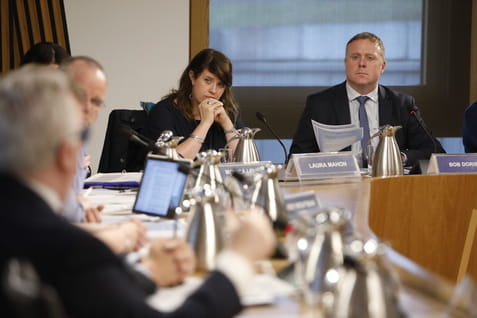
The Committee then held a follow up evidence session with the Minister for Community Safety at its meeting on 27 March 2019. It then agreed to write to the Minister for Community Safety, the Law Society of Scotland and Clerks of all Licensing Boards in Scotland to request further written evidence in relation to community participation in licensing decisions. The letters are available on the Local Government and Communities Committee's Alcohol Licensing page here.
People with No Recourse to Public Funds
The Committees attention was drawn to the vulnerability of asylum seekers and those with insecure immigration status following the tragic events of last summer 2020. In particular, the Committee was concerned at the plight of people with no recourse to public funds (NRPF) and the gaps that those seeking to help them in local authorities and the third sector have found in the system. The correspondence and submissions received are available on the Committee’s No Recourse to Public Funds inquiry page.
No Recourse to Public Funds applies to people who are ‘subject to immigration control’, i.e. people with the following immigration status types:
Requires leave to enter or remain in the UK but does not have it (is without leave) (e.g. visa overstayer, illegal entrant, asylum seeker)
Has leave to enter or remain in the UK which is subject to a condition that they have NRPF (e.g. spouse of a settled person, Tier 4 student and their dependents, leave to remain under family or private life rule)
Has leave to enter or remain in the UK that is subject to a maintenance undertaking (e.g. adult dependent relative of a British citizen or person with settled status for first five years they are in the UK)
The NRPF condition prevents people from accessing most mainstream social security benefits, homelessness assistance and a local authority allocation of social housing, although there are some exceptions which may mean a particular benefit can be claimed by a person with NRPF. People with NRPF are not prevented from accessing other publicly funded services, although these can be restricted due to their immigration status or length of residence. Local authorities also have duties to safeguard the welfare of children, young people leaving care and vulnerable adults and, in certain cases, a referral can be made to the relevant social work team when a family or vulnerable adult with NRPF is at risk of homelessness.
Previous work on this issue has already taken place and the Equalities and Human Rights Committee published a report on its inquiry into asylum and insecure immigration status in - Hidden Lives - New Beginnings: Destitution, asylum and insecure immigration status in Scotland (22 May 2017).
The Committee heard during evidence [link to Wed 10 March OR to follow] how the COVID-19 pandemic has worsened the situation. We heard that while COSLA published guidance COVID-19 Response Planning: Supporting Migrants with No Recourse to Public Funds, which was welcomed by stakeholders, the implementation by local authorities has been inconsistent. We also heard how individuals with NRPF require access to legal aid in order for them to fully understand their situation and what options are available to them.
The successor Committee may wish to follow this up with Local Authorities (COSLA) to understand if the situation has improved.
The landscape will undoubtedly change as the COVID-19 restrictions are lifted and the successor Committee may wish to invite UK and Scottish Government Ministers to give an update in evidence to the Committee. The Committee may want to press Ministers on their own campaigns that alert those with NRPF and insecure immigration status on what assistance is available to them. It was suggested this should go beyond social media and utilise the traditional formats like newspaper and TV adverts.
We urge the successor Committee to investigate further Scottish Government guidance on supporting women in domestic abuse situations. The Committee heard that the current rules for seeking refuge only apply to those who are abused by a partner or ex-partner and not if the perpetrator is a family member. It was suggested that if the term ‘domestic abuse’ includes female genital mutilation, forced marriage, and honour based violence, then family members (other than partners or spouses) should also be considered perpetrators.
Engaging communities and people with ‘lived experience’
In addition to engagement through public call for views, visits and informal briefings the Committee sought to hear directly from communities and individuals with lived and worked experience of areas subject to its scrutiny.
The Committee sought a wide and inclusive approach to engagement and used different methods to do this. This ranged from the usual call for views, evidence sessions in formal committee meetings, committee visits and community meetings across Scotland, to exploring different methods such as: online discussion tools; community development, and rights-based approaches and since Covid 19, online meetings.
Diversity and Inclusion
The Committee has, where possible, identified particular groups who may be most impacted by certain legislation or policy and has sought approaches to involve these groups in scrutiny. These have included:
Island and rural communities
Older and younger people
People with learning and or physical disabilities
People who are socially and/or economically excluded
People with protected characteristics
A number of strategies have been used to effectively inform scrutiny, and to develop a meaningful and sensitive approach to hear from communities and a diverse range of people with lived experience. These are:
Using a partnership approach with trusted organisations, umbrella bodies and grass roots groups, networks who have: established relationships with individuals and communities; have developed particular and recognised approaches to working with individuals and groups; are experts in the field; have experience and are working within the benefits system.
Setting up external meetings in informal, local, known and trusted settings.
Including front line and support staff as valuable evidence of ‘worked experience’ and to support people with ‘lived experience’ to participate.
Exploring different means of gathering and presenting evidence, such as staff working to a remit agreed by Members and reporting back, using different methods such as video clips, oral presentation and written report.
Providing advance information and ‘getting to know you’ sessions for individuals and groups, feedback and follow up after engagement.
Some examples of this work are:
Using digital tools and partnership with the third sector the Committee undertook scoping work into what makes good community wellbeing. Using an online discussion tool 'Your Priorities' the Committee received over 220 ideas and suggestions from over 700 people from a wide range of backgrounds, ages and locations 700 people across Scotland. Working in partnership with Orkney TSI, Shetland TSI, TPAS Scotland, YMCA Edinburgh and Dumbiedykes Working Group, inclusive face to face activities such as arts and crafts, workshops and discussions, were developed to hear from easy to ignore and diverse groups. The Committee also visited Raploch Hub.
In undertaking scrutiny of the Community Empowerment (Scotland) Act 2015 the Committee worked with the Scottish Community Development Centre and Midlothian Voluntary Action to reach a wide range of third sector organisations, community councils and marginalised groups. Midlothian Voluntary Action hosted a community meeting on Zoom attended by 32 community groups from across Scotland. Over 100 groups completed an online survey.
Period Products (Free Provision) (Scotland) Bill
Partnering with the Scottish Youth Parliament (SYP) and Perth and Kinross Association of Voluntary Services (PKAVS), a workshop with Members of the SYP was held during the SYP sitting in Dunfermline and a further meeting was held at PKAVS offices in Perth with people who were facing direct experience of the issues arising from period poverty or access to period products.
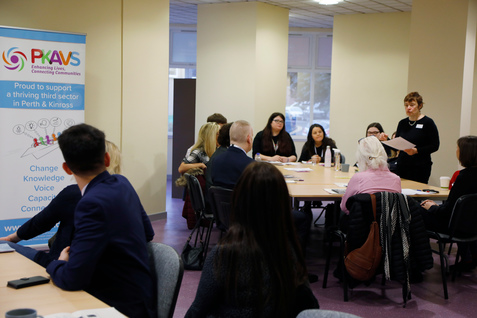
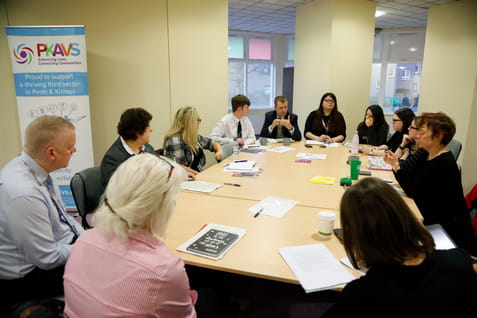
Non Domestic Rates (Scotland)Bill
Community meetings and visits were held to hear views of organisations and communities who may be directly impacted by the Bill. The Committee worked in partnership with The Scottish Council of Independent Schools (SCIS), Celebrate Kilmarnock and Forth Chamber of Commerce to reach independent schools, local businesses and organisations and held a meeting for independent schools at George Watson's College, at Celebrate Kilmarnock offices and the Engine Shed in Stirling. The Committee also conducted visits to organisations in each of these areas.
The Empty Homes Partnership supported the Committee to reach individuals with lived experience of the issue and an informal private session was held in Parliament.
With support from the Empty Homes Officer in East Ayrshire Members of the Committee visited Kilmarnock and Newmilns in East Ayrshire to view property and to see the impact of empty homes on a community. The Committee met with local development trusts and had a further open community in the Morton Hall, Newmilns.
Fuel Poverty (Target, Definition and Strategy) (Scotland) Bill
The Committee visited and held meetings in Dundee and Lewis and Harris in the Western Isles to hear from members of the public who were facing or had experienced fuel poverty and to gain first-hand experience of the issues considered.
Dundee Energy Efficiency Advice Project met with the Committee and supported them to visit individual homes in Dundee and Dundee Voluntary Action hosted an open meeting in Lochee Community Hub to hear from people who were facing or had experienced fuel poverty. The Committee worked closely with Tighean Innse Gall (TIG) who facilitated a series of visits to homes around Lewis in the Western Isles and held a meeting at the Bayhead Bridge in Stornoway to meet with individuals.
The Committee conducted a series of fact finding visits with: Streetwork in Edinburgh, Simon Community and Legal Services Agency, Glasgow; Churches Action for the Homeless (CATH) in Perth. Members also accompanied development workers from CATH’s Outreach and Floating Support teams to rural locations and met with service users. The Committee held a session with people with lived experience of homelessness.
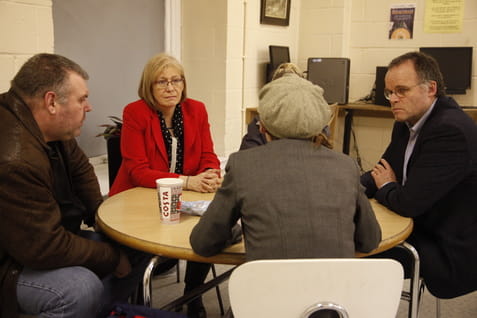
Community engagement involved: two online tools, community meetings, a visit and a conference. Two separate online tools were used to gather the views of respondents that may not have had the opportunity, or would be unlikely to respond to, the formal call for written evidence. These were an Online Survey promoted though the Scottish Youth Parliament and Youthlink and the use of Dialogue, an online tool aimed at generating ideas in response to specific challenges facing Scotland today. This was the one of the first uses of digital engagement in the Scottish Parliament. Community events took place in Portree, Stonehaven, and Motherwell, a visit to Linlithgow and a conference was held in Forth Valley College Stirling.
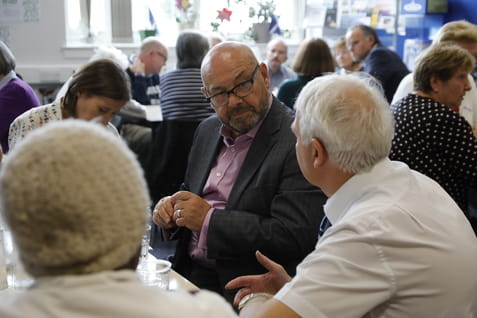
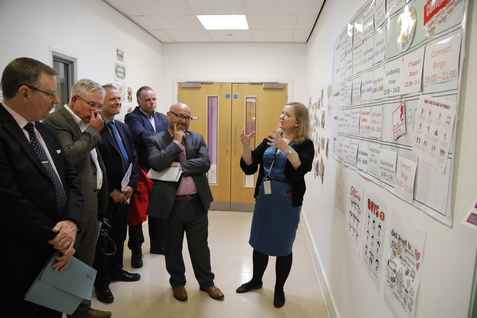

Lessons Learned
Moving forward in order to hear from communities and from people with lived and worked experience in a way that is supportive, meaningful and ethical, it is suggested that effective ways to support this are:
Working in partnership with organisations who have established trusted relationships and methods of working with the people the Committee seek to hear from, and to co-develop approaches together. For example, with Third Sector Interfaces.
Allowing engagement staff, where appropriate and as agreed by Members, to work independently to co-produce sessions and deliver them with or without Member involvement. Staff can explore different and creative ways of doing that and report back to Committee.
Using a partnership approach brought new and different groups together to share experiences and approaches and to work together. There could be added benefit in developing as a facilitating and networking role.
Communicating and producing information in a number of different formats and media, making it clear and accessible. Before during and after engagement.
Integrate engagement planning and outcomes across all teams.
Feedback from participants:
‘It made me feel that the Scottish Parliament was not a remote organisation but was genuinely interested in all parts of the country.’
‘I was impressed at the concern shown by the MSPs, and their co-operation from different political parties in ascertaining the needs of our island communities. I appreciated that they had spent time away from their homes and families to visit the island, especially as I think they all represent areas in the Central Belt of Scotland.’
Feedback from participants in the Fuel Poverty community outreach sessions.
“I took a lot from the meeting but the most valuable aspect for me, would be the commitment of the Committee to actually get out and about and tour the country. It’s easy to overlook so I would like to acknowledge and encourage the actual approach adopted - excellent. It makes a big difference to people and, I would suggest, also encourages a sense of ownership and collective responsibility.”
“I was very impressed by the candour of the MSPs and their willingness to have such an open discussion with us. It was very refreshing to see that the Committee members had taken the time to get out of Edinburgh/Holyrood to come speak to the people in Kilmarnock and hear their real life/business experiences in our community first-hand.”
Feedback from participants in the Non Domestic Rates (Scotland) Bill outreach sessions
Public Petitions
The Committee considered the following petitions over the Parliamentary session-
PE1539 on Housing Associations to come under the Freedom of Information (Scotland) Act 2002
Following a Scottish Government consultation the Scottish Government agreed to seek to extend the Freedom of Information (Scotland) Act 2002 to register social landlords. Given this action the Committee agreed to close the petition and to seek written evidence from the petitioner at the time that the relevant secondary legislation is laid in Parliament.
PE1534 on Equal rights of appeal in the planning system
The Committee agreed to close this petition at its meeting on 14 September 2016 given that it had explored the terms of the petition with the Minister for Local Government and Housing on 7 September 2016. The Minister confirmed that the issue would be taken into account during the Scottish Government's consultation on the planning system and that the petitioner would be given the opportunity to engage in workshops relating to the consultation. A planning bill is expected in the coming parliamentary year an the Committee expects to be the lead Committee in its scrutiny.
PE1655 on Scotland's National Scenic Areas
This petition was referred to the Committee by the Public Petitions Committee on 26 March 2018. It called on the Scottish Government to review the process for designation of National Scenic Areas (NSAs) and to consider increasing the number of NSAs in Scotland to protect the natural landscape and support the tourism sector.
The Committee considered the petition at its meeting on 16 May 2018. Given that the petition related to a planning matter, the Committee agreed to note the petition and close it, on the basis that the Committee's Stage 1 report on the Planning (Scotland) Bill had already been agreed and that any MSP could bring forward an amendment to try to meet the petition's aim at Stage 2, should they wish to do so
PE1686 on the homelessness crisis in Scotland
The petition was referred to the Committee by the Public Petitions Committee on 13 September 2018. It called on the Scottish Parliament to urge the Scottish Government to front load £40 million of £50 million from the Ending Homelessness Together Fund allocated for the core homeless over the next five years, to be used in the next year to build new homes and refurbish existing properties so that the core homeless have safe, secure, and comfortable homes in tandem with support services in an expanded housing first policy.
The Committee considered the petition at its meeting on 21 November 2018, after which it agreed to write to the Scottish Government to seek its views on the issues raised in the petition. The Government responded on 10 January 2019 and the Committee considered the response and the petition again at its meeting on 30 January 2019. At that meeting, the Committee agreed to close the petition, under Rule 15.7 of Standing Orders, on the basis that the evidence received did not support the action called for in the petition
PE1719 on review of fire safety stay-put policy
The petition called on the Scottish Parliament to urge the Scottish Government to review the current ‘stay-put’ policy as it applies to the fire strategy for existing multistorey residential buildings. The petition was referred to the Session 5 Local Government and Communities Committee by the Public Petitions Committee on 21 November 2019. The Committee agreed to consider the Petition as part of its scrutiny into Building Safety and Fire Regulations on 22 January. Following further consideration of the Petition on 4 March 2020, the Committee agreed to write to the Scottish Fire and Rescue Service on issues raised in the petition and to close the petition.
PE1743 on amending the law to protect the rights of pre-1989 Scottish Secure Tenants
This petition called on the Scottish Parliament to urge the Scottish Government to amend the Rent (Scotland) Act 1984 to prevent disproportionate rent increases being set for Scottish Secure Tenants. This Committee’s first formal consideration of the petition was on 21 August 2020. The Committee wrote to the Scottish Government, the Scottish Courts and Tribunal Service, Living Rent and Glasgow and West of Scotland Forum of Housing Associations for further evidence on issues raised in the petition.
The Committee considered the petition at its meeting on 18 November, taking into account all recent correspondence in connection with the petition. Following the meeting, the Committee wrote to the Scottish Government, indicating agreement with the tenant that this matter should be addressed as a matter of fairness, by legislative amendment if necessary.
The Minister for Local Government, Housing and Planning responded to the Committee on 21 January. He confirmed that the Scottish Government remains of the view that it is not necessary to amend the Rent (Scotland) Act 1984. He stated, however, that following the Committees request and the additional evidence provided, the Scottish Government will examine further the extent of the issue and the implications of changing the law for both tenants and landlords. Following this, if a decision to amend the legislation is required they will seek to make these changes at an appropriate time in the parliamentary timetable. He was unable to provide a timescale as to when this work would be taken forward, due to the ongoing response to coronavirus.
The Committee considered the petition again at its final meeting on 17 March 2021. Given that there is outstanding work to be undertaken by the Scottish Government in relation to issues raised in the petition, the Committee agreed that it should be kept open for its successor Committee to consider in Session 6.
PE1778 on reviewing the Scottish Landlords Register scheme
This petition called on the Scottish Parliament to urge the Scottish Government to review the effectiveness of the Scottish Landlords Register scheme. This petition was referred to the Session 5 Local Government and Communities Committee by the Public Petitions Committee on 9 October 2020. This petition was referred to the Session 5 Local Government and Communities Committee by the Public Petitions Committee on 19 March 2020.
This Committee considered the petition at its meeting on 18 November. During consideration, it took into account the views and evidence received in connection with the petition and also a report by the UK Collaborative Centre for Housing Evidence which notes views that in Scotland the relevant legislation had been “hastily assembled” and that “National systems of registration or licensing require greater clarity of purpose, both on a national level and in their enforcement by local authorities.” The main report states (at page 45) that: “Scottish authorities also reported a lack of clear guidelines to inform enforcement decisions, particularly in relation to the application of the “fit and proper person” test.”
The Committee agreed that the petition raised some questions about the process of landlord registration, it therefore wrote to the Scottish Association of Landlords, COSLA and the Scottish Government to seek views on issues raised in the petition.
Responses are available on the Committee's petition page here. In his response, the Minister Local Government, Planning and Housing states that the Scottish Government does not agree with the views of the petitioner that a full review of the policy is required. He states that the Government carried out stakeholder engagement with local authorities during the development of the Private Landlord registration (Information) (Scotland) Regulations 2019, and prior to the covid-19 outbreak, it established a number of working groups with local authority stakeholders as part of implementing and monitoring these changes. It intends to return to this work this year and will work with local authorities in the coming months, to assess the effectiveness of the current statutory guidance and update it.
The Committee considered the petition again at its final meeting on 17 March 2021. Given that there is outstanding work to be undertaken by the Scottish Government in relation to issues raised in the petition, the Committee agreed that it should be kept open for its successor Committee to consider in Session 6.
Other work
Payment to Returning Officers in Scotland
The Committee undertook a short inquiry on payments to Returning Officers in Scotland for the conduct of elections and referendums, due to public concerns raised regarding the perceived transparency of the process, the amount of payments and the frequency of elections. In the current system, each Returning Officer (usually a Local Authority Chief Executive) can claim sums over and above their salary for undertaking the role.
Reporting in January 2017, the Committee called for the current system of payments to be stopped and to review the role and remuneration of Returning Officers in Scotland. The Scottish Government has agreed to review their role and remuneration as part of its consultation on electoral reform. However, given the announcement of the most recent General Election to take place in June 2017, the Committee wrote to the Scottish Government again in May 2017 to suggest that this work be brought forward urgently. The Committee also wrote to the UK Government highlighting its work in reference to elections it is responsible for in Scotland.
Continuing this work in June 2017 the Committee, via the Scottish Parliament's Information Centre, issued a freedom of information request to all local authorities on payments to returning officers for running elections. A range of approaches were adopted by local authorities in providing this information which further endorsed the Committee's concerns regarding the perceived lack of transparency regarding these payments. The Convener wrote to both the Scottish and UK Governments expressing these concerns. Responses were received from the Scottish Government on 1 November 2017 and 13 December 2017. The UK Government responded on 20 November 2017.
In its consultation on Electoral Reform the Scottish Government specifically referenced the Committee's work on returning officer payments seeking responses on the appropriateness of these payments. The issue was not, however, included in an associated Bill, the Scottish Elections (Reform) Bill, introduced on 2 September 2019.
The Barclay Review of Non-Domestic Rates and the Small Business Bonus Scheme
Following the publication of the Barclay Review of non-domestic rates on 22 August 2017 the Committee heard evidence from the Cabinet Secretary for Finance and the Constitution on the Scottish Government's response to the review.
At that meeting the Cabinet Secretary invited the Committee to contribute to its work on evaluating the Small Business Bonus Scheme. The Committee agreed and then held an evidence session with key stakeholders on the range of measures that might form the basis of an evaluation of Small Business Bonus Scheme (SBBS). At that session the Committee was concerned to hear that no evaluation has taken place of the SBBS since its introduction in 2008.
Following the evidence session the Committee wrote to the Cabinet Secretary for Finance and the Constitution welcoming the Scottish Government's forthcoming review of the SBBS but also making a number of recommendation as to how that review should be taken forward. In particular the Committee recommended that the review of SBBS be conducted independent of the Scottish Government and involve stakeholders such as small businesses and Audit Scotland. The Committee also recommended that the outcomes and lessons learned from the SBBS review are applied more widely to other government policies and proposals and that no policy should be implemented without a robust range of evaluation measures of its effectiveness being identified at its outset.
Common Good Properties and Funds
In February 2017 the Local Government and Communities Committee launched a call for written evidence from all interested parties to inform its scrutiny of common good property and funds and received 29 responses. The Committee then took oral evidence from a panel of stakeholders on 20 December 2017. The Committee heard from stakeholders that whilst work is underway at the Scottish Government to provide for a register of common good other challenges remain. Following the evidence sessions the Committee wrote to the Scottish Law Commission suggesting that this issue could be included as a topic for inclusion in its Tenth Programme of Law Reform. The Scottish Law Commission responded that in their view there was inadequate support for a project on the law of common good property and funds.
National Outcomes
On 27 March 2017 the Local Government and Communities Committee was designated by the Parliamentary Bureau to lead the Parliament's scrutiny of the Scottish Government's draft revised National Outcomes. National Outcomes represent the Scottish Government's broad policy aims and are part of the National Performance Framework. Under section 2 of the Community Empowerment (Scotland) Act 2015, the Scottish Government is required to consult the Scottish Parliament on the proposed revisions to the Outcomes.
The Committee sought the views of other relevant committees on the Outcomes that fell within their remit and then reported its views on those three outcomes most relevant to its remit:
We live in communities that are inclusive, empowered, resilient and safe;
We tackle poverty by sharing opportunities, wealth and power more equally;
We grow up loved, safe and respected, so that we realise our full potential.
Local Government Boundary Commission for Scotland's 5th Review
The Committee scrutinised the Local Government Boundary Commission for Scotland's 5th Electoral Reviews and the Scottish Government's subsequent response. Changes to local authority arrangements came into force on 30 September 2016, and are made subject to no procedure statutory instruments and therefore the Committee is not duty-bound to scrutinise them. The Committee, however, felt that there were a number of issues raised during its consideration of the reviews which should be highlighted to Parliament and should help to inform and improve future reviews. The Committee recommended that given new roles for the Boundary Commission in relation to Scottish Parliament constituencies and the role of the Parliament in agreeing these, it was now time to review the process for changing Local Authority Boundaries.
One-off evidence sessions
The Committee has also held a number of one-off evidence sessions on:
The Committee undertook a one-off evidence on 1 May 2019 on new powers arising from the UK's withdrawal from the European Union, focussing on procurement and structural funds, as these are of particular importance to the local government sector. Themes from the session will help inform the Committee's response to the Finance and Constitution Committee's letter seeking views from committees on developing a more co-ordinated approach to Parliamentary scrutiny, following any post-Brexit repatriation of EU powers to the UK.
Evidence from public bodies
Each Parliamentary year the Committee took evidence from three independent public bodies whose work falls within the Committee's remit. The focus of these sessions included the office-holder's performance over the past year, whether they considered they had adequate powers to fulfil their role, and key challenges for them looking ahead:
Our successor Committee might wish to consider whether to continue this practice.